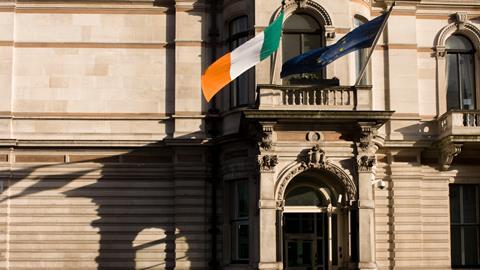English and Irish legal systems will ‘grow further apart’ as a result of Brexit but Ireland will remain ‘a fully-fledged and fully-recognised member of the common law family’, an Irish Supreme Court judge has said.
Mr Justice Gerard Hogan said a divergence between the two systems is ‘inevitable’ as the influence of rulings by the European Court of Justice (ECJ) ‘wanes’ in England and the UK departs from retained EU law. He also said the common law’s influence on the ECJ would be ‘weakened post-Brexit’.
But he emphasised that ‘the common law remains firmly embedded at the heart of the Irish legal system’, adding: ‘Even if there are further cleavages between the two jurisdictions in the area of substantive common law – as I think is inevitable – I remain convinced that the EU legal tradition is nonetheless sufficiently diverse to accommodate and tolerate and even cherish a small country from a different legal family.’
Speaking at the Irish embassy in London on Thursday evening, Hogan, a former ECJ advocate general, said there is ‘a real risk that, in the absence of the UK, the distinctively common law nature of the Irish legal system will in some respects be crowded out by the sheer dominance of the continentals’.
‘But more important than the substantive law is the legal method,’ Hogan added. ‘Here the beating heart of the common law – oral hearings, the doctrine of precedent, English legal writing, individual judicial autonomy and multiple judgments – will remain strong in the country once described as the “first adventure of the common law”.’
He also said he hopes there will be business opportunities for Irish lawyers post-Brexit, saying that ‘there is a role, I think, for litigation in the English language within the realm of the European Union system’. Hogan added: ‘Not in a million years are we ever going to compete with London as the chief legal services centre in the world, but at the same time there are real competences, expertise and knowledge within the Irish legal system.’
The Irish ambassador to the UK Adrian O’Neill earlier said Ireland’s common law tradition ‘offers an opportunity to Ireland as the last wholly common law jurisdiction in the EU to become a bridge between [other common law] jurisdictions and the EU’.




























6 Readers' comments